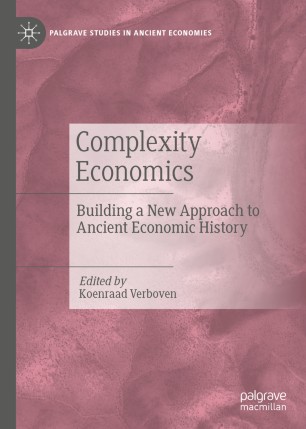

Most ebook files are in PDF format, so you can easily read them using various software such as Foxit Reader or directly on the Google Chrome browser.
Some ebook files are released by publishers in other formats such as .awz, .mobi, .epub, .fb2, etc. You may need to install specific software to read these formats on mobile/PC, such as Calibre.
Please read the tutorial at this link. https://ebooknice.com/page/post?id=faq
We offer FREE conversion to the popular formats you request; however, this may take some time. Therefore, right after payment, please email us, and we will try to provide the service as quickly as possible.
For some exceptional file formats or broken links (if any), please refrain from opening any disputes. Instead, email us first, and we will try to assist within a maximum of 6 hours.
EbookNice Team

Status:
Available4.6
23 reviewsEconomic archaeology and ancient economic history have boomed the past decades. The former thanks to greatly enhanced techniques to identify, collect, and interpret material remains as proxies for economic interactions and performance; the latter by embracing the frameworks of new institutional economics. Both disciplines, however, still have great difficulty talking with each other. There is no reliable method to convert ancient proxy-data into the economic indicators used in economic history. In turn, the shared cultural belief-systems underlying institutions and the symbolic ways in which these are reproduced remain invisible in the material record. This book explores ways to bring both disciplines closer together by building a theoretical and methodological framework to evaluate and integrate archaeological proxy-data in economic history research. Rather than the linear interpretations offered by neoclassical or neomalthusian models, we argue that complexity economics, based on system theory, offers a promising way forward.